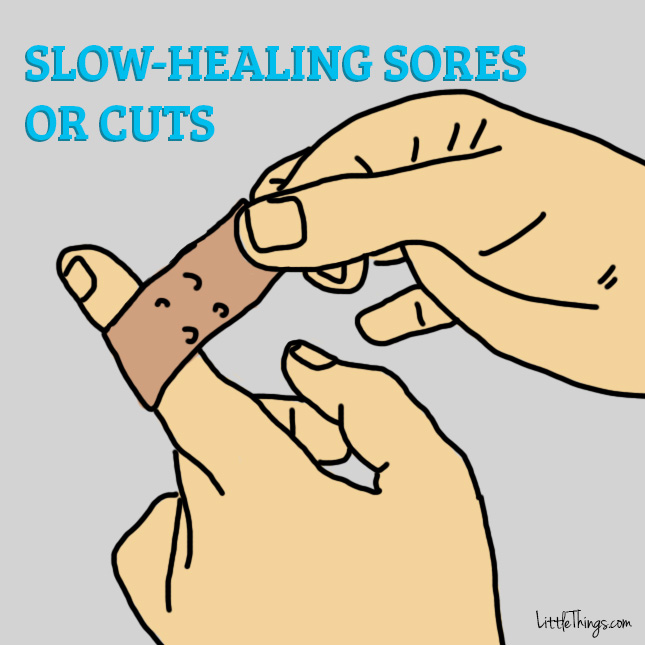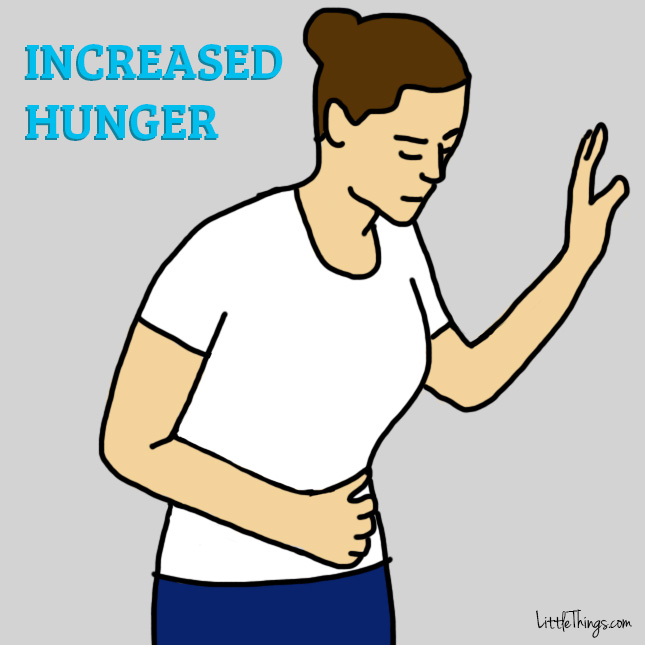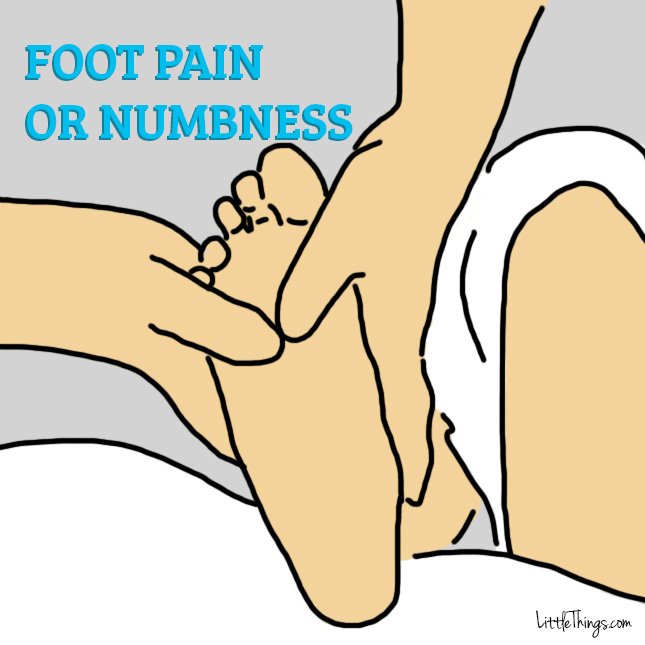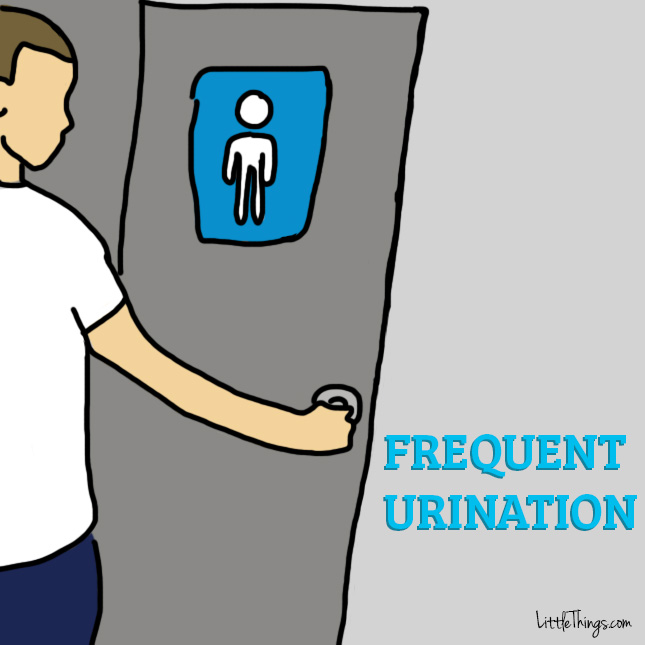
According to the American Diabetes Association, 37.3 million Americans had diabetes in 2019. But not all are aware of their diagnosis. Millions of people went undiagnosed entirely.
Now, I know my body better than anybody else. So I am always paying attention for any signs or symptoms that something major might be wrong. But when I heard how many Americans had diabetes and weren't aware of it yet, I knew I had to find out exactly what the symptoms were.
Just like paying attention for symptoms of cancer, looking out for the signs of pre-diabetes or full-blown diabetes is absolutely crucial. With type 2 diabetes, quite often the symptoms can be very mild, meaning that they go unnoticed for a long time while the disease wreaks havoc on your body. And with type 1 diabetes, the symptoms are often very severe and can come on quite quickly.
More from LittleThings: Canker Sores: The Surprising And Simple Remedies Hiding In Your Bathroom And Kitchen
In any case, knowing when something is wrong with your body, and when it might be a sign of diabetes, is critically important to getting the proper medical care as soon as possible.Prompt diagnosis of diabetes can help enormously with treatment. And spotting diabetes right before it starts can help you avoid the full-blown disease altogether!
Scroll through to see these vital and even surprising symptoms of diabetes.

While losing weight might sound positive, unexplained weight loss of 10 or more pounds in a short period of time could be a sign of something wrong with your body. Dr. Andrew Bremer of the National Institute of Diabetes and Digestive and Kidney Diseases says, "I'd be concerned if you're eating more and losing weight."
When your blood sugar levels are high due to diabetes, your body's cells aren't getting glucose. Then the body starts breaking down your muscles as a substitute form of energy. This can also make the kidneys work overtime, causing long-term damage.
Whether it is a direct result of diabetes or not, always see a doctor if you experience unexplained weight loss.

One of the common symptoms of diabetes is having blurred vision or seeing floaters on the eyeball. Dr. Collazo-Clavell writes, "Blurry vision is a refraction problem. When the glucose in the blood is high, it changes the shape of the lens and the eye."
This blurry vision is an early warning sign of type 2 diabetes. Don't just assume your distorted vision is normal. Especially if it is coupled with any of these other symptoms, you should definitely see your doctor about it.

When your body is dealing with diabetes, it will quite often take much longer for sores or cuts to heal. WebMD writes, "Over time, high blood sugar can affect your blood flow and cause nerve damage that makes it hard for your body to heal wounds."
The lack of blood flow to specific areas that need healing will prevent the process from occurring at a normal, rapid speed. Slow-healing sores or cuts are definitely a red flag that you may need to visit your doctor regarding diabetes.

Another strange but common symptom of diabetes is an unexplained and persistent increase in appetite. Dr. Fernando Ovalle says, "Insulin doesn't work well for some reason in muscle, fat, and other tissues, so your pancreas starts to put out a lot more. This results in high insulin levels in the body. That insulin level makes the brain feel hungry and makes you hungry."
Of course, hunger by itself isn't always a cause for worry. But an increased hunger, when accompanied by unexplained weight loss or others of these symptoms, should be cause enough to see a doctor.

Similar to the increased hunger, fatigue may be a result of diabetes as well. WebMD writes, "If your body doesn't make enough or any insulin…you have no energy." This can make you more "tired than usual."
Fatigue is one of those symptoms that could have a lot of causes besides diabetes, like cancer, hypothyroidism, anemia, or even depression. Regardless, persistent or chronic fatigue should definitely be a sign that you need to visit your doctor to have things checked out.

Numbness or pain in the feet can just be a result of poor circulation, but it is also one of the symptoms of diabetes. Dr. Ovalle says that it "usually starts in the feet and then it progresses upward."
The numbness can be the result of nerve damage caused by diabetes. This particular symptom is most likely in people who have had diabetes for awhile, but it can occur with pre-diabetes as well. Regardless, numbness in the extremities is never a good sign, and you should always seek out a doctor's opinion.
Go to the NEXT page for more vital and even surprising symptoms of diabetes.

Frequent urination is one of the more common symptoms associated with diabetes. Dr. Bremer says, "If 4 months ago you were getting up once in the middle of the night to pee and now you're getting up three times, that's a clue you need to get checked out."
When diabetes causes an increase in blood sugar, your body may try to create extra urine to get rid of it. This causes you to need to urinate much more than the average person. If you are experiencing frequent urination, you should definitely talk to your doctor, as it can have several negative effects on your body.

One of the negative effects of having to frequently urinate from diabetes is that you are also always thirsty. WebMD writes, "You'll have to go more often. You might pee out more, too. Because you're peeing so much, you can get very thirsty. When you drink more, you'll also pee more."
This maddening cycle alternates between an excessive need to use the bathroom and the desire to drink more fluids. It might just be a sign that you have diabetes and need to pay a visit to your doctor.

Dry, itchy skin can also be a sign that you need to ask your doctor about diabetes. Even other skin conditions can occur such as what Dr. Collazo-Clavell calls "a darkening of the skin around the neck or armpit area."
The skin problems can be the result of blood sugar levels being off, but they can also be caused by dehydration from excessive urination. If you are experiencing itchy skin, coupled with other symptoms of diabetes, you should take a trip to your doctor.

Yeast infections can be a significant sign that diabetes may be a problem for you. And it doesn't just affect women. WebMD writes, "Both men and women with diabetes can get these. Yeast feeds on glucose, so having plenty around makes it thrive. Infections can grow in any warm, moist fold of skin."
While the genitals are the most common location, these infections can also occur under the breasts or between the fingers and toes. While plenty of people experience yeast infections, it might be worth consulting your doctor just to be on the safe side.
Knowing the symptoms of diabetes can help you to know when you need to visit a doctor. This vital information can help you receive treatment faster and potentially stop full-blown diabetes before it occurs.
Please SHARE this vital health information so that others can look out for these symptoms too!




